Or the adventures of living in the Netherlands
You know nothing, Katie Melua. There might be 9 million bicycles in Beijing, but there are 13 million of them in the Netherlands. However, Beijing has 20 million inhabitants and the Netherlands 16 millions, which basically means that nearly every person living here has a bike. If we exclude the people who are too old or too young* to cycle, it actually turns out that some have more than one bike. There, somewhere in the shed, is a spare bike just in case of a flat tire.
*I use the phrase “too young” very skeptically and loosely, because it sometimes seems to me that the Dutch put their children on a bike as soon as they learn how to walk or even before. But it’s true that the children get used to it quickly, because they drive around not with a car, but with this from the very beginning:
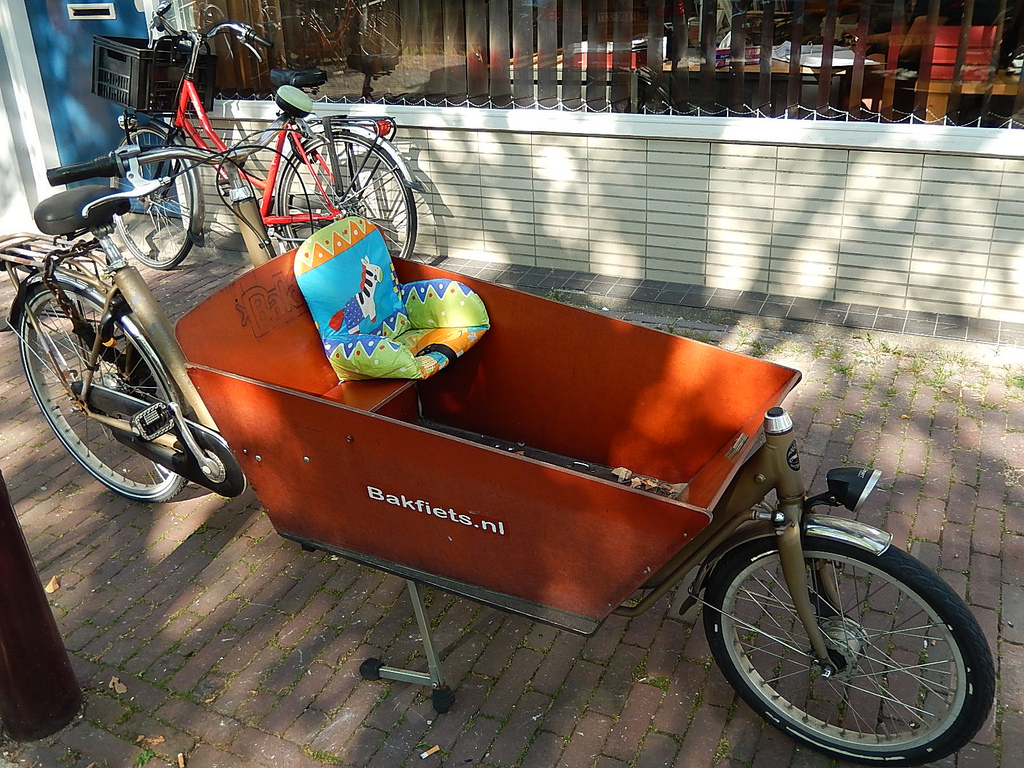
“Bakfiets” bike, used to transport kids and furniture. Sometimes simultaneously.
A bike is obligatory, you can’t avoid it. When I came to the Netherlands in August 2015, the bike was my first and also most practical purchase. Don’t get me wrong: when I lived in Ljubljana, I also tried to use the bike (for a couple of weeks), but it’s different when you’re surrounded by a bike culture. When I wanted to cycle to uni in Ljubljana, I was stopped by the smallest rain and the faintest breeze of wind. Here, my leather jacket has white spots on it because last year I drove through hail at a certain point. And I was far from the only one. So it’s clear that cycling is part of the Dutch life* but let me give you a couple of examples to show how deep this love actually goes.
*Everyone and their mothers know this, I feel. That won’t stop me from writing about it.
Buses exist … supposedly
In January this year, I went to the city centre by bus a couple of times. Weather: -10 degrees, hellish wind. Truly unpleasant. Despite this, buses were still half empty and I was always able to find a seat. The only people on the bus were either loaded with shopping bags and/or were older than 60 years. I’m willing to bet that at least some of the young people on the bus weren’t there by their own free will but were rather forced into it because their bikes broke or were stolen.
If you come to uni after 10:00, good luck
The Dutch firmly believe in starting uni and work at 9 o’clock. If you come to the faculty building before 9 o’clock, all bike racks are empty. If you come at eleven … well, you have a bit of a problem.
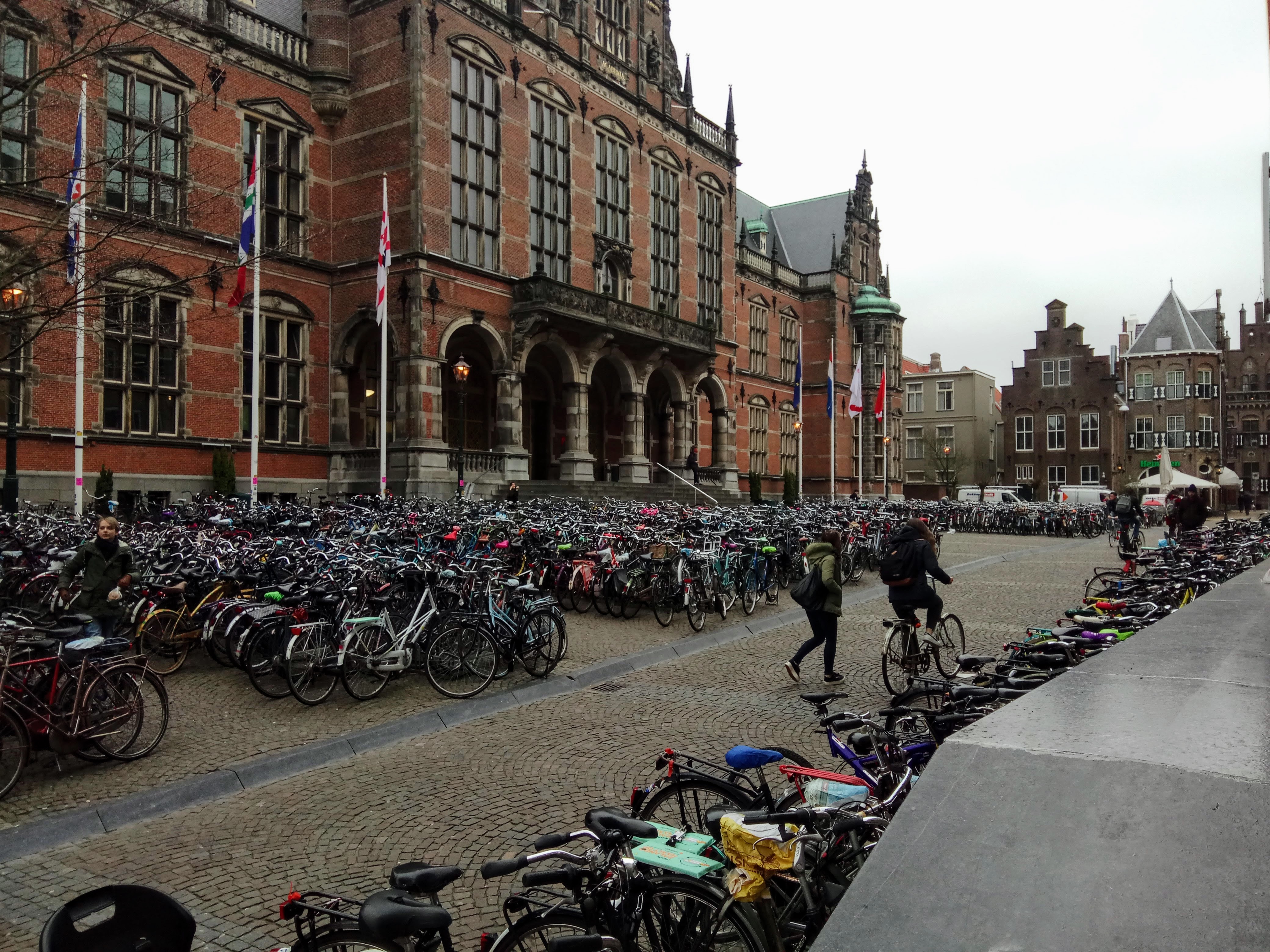
University parking lot. Good luck finding a spot …
I think a lot can be gleaned from the fact that all university parking lots have at least one person who makes sure that all bikes are where they need to be. They’re in charge of order and prevent the bike racks from falling into chaos. They don’t help you find an empty spot, unfortunately. They sooner laugh at you.
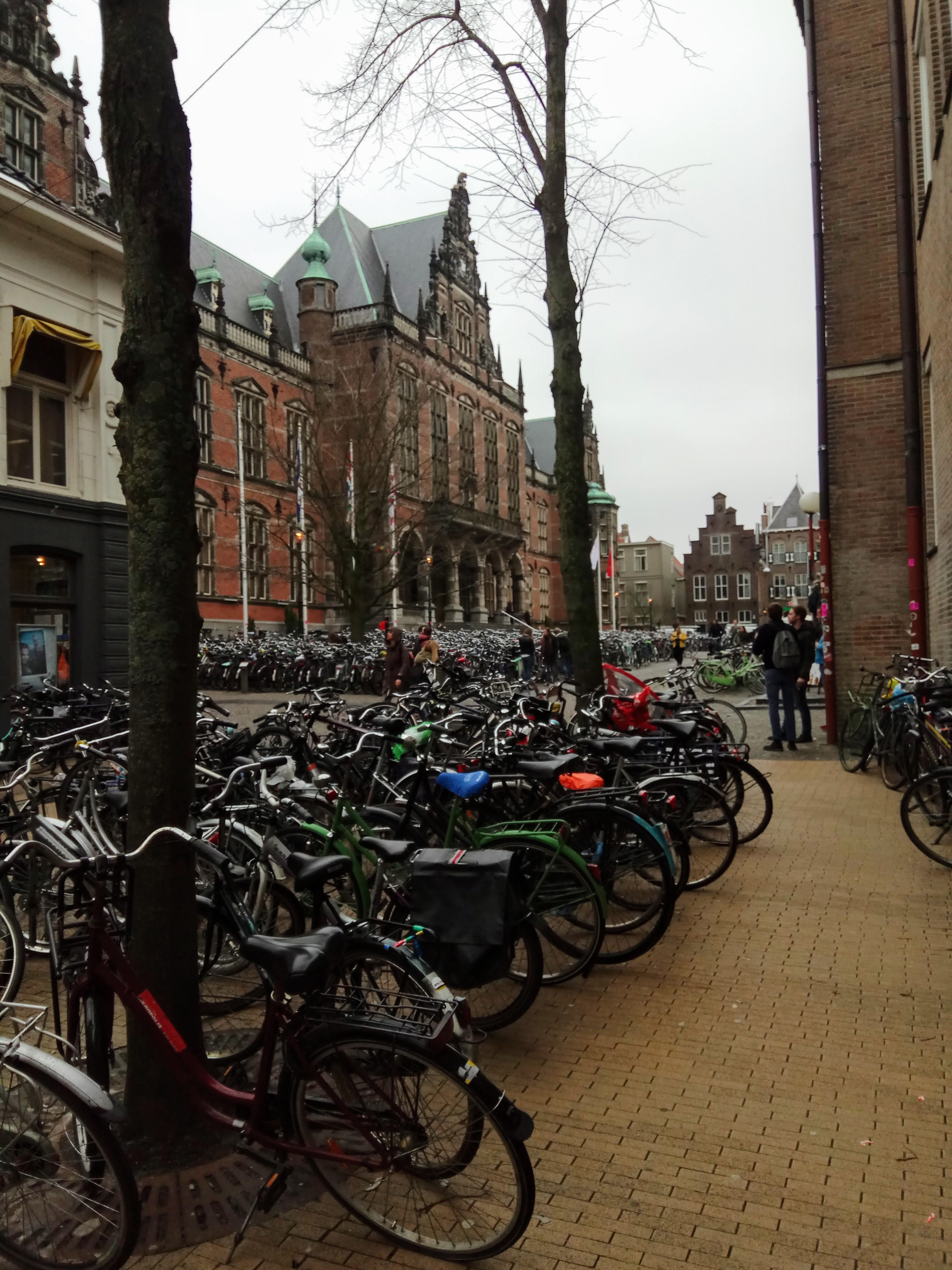
Bikes. Bikes everywhere.
One lock is good, two is better.
On my bike I have two locks, which serve a double purpose. One is preventing theft: not because the lock itself prevents theft (bike thieves can easily pluck all bike parts until only the frame remains, the lock notwithstanding) but because thieves usually don’t feel like dealing with a locked bike. They know that somewhere, they’ll find an unlocked one for which they’ll use up less time. The second reason is identification: my second lock is bright pink* and helps me find my bike a lot faster. And here I’m talking about real, heavy metal locks, not those things that we call bike locks in Slovenia.
*Now, the lock isn’t bright pink anymore, but rather a pale dirty pink. That’s just what rain and wind do (I’d say sun as well, but there is no sun here …).
You learn bike parts in the beginner’s Dutch course
I’m not even kidding. The beginner’s Dutch course, where you go from level A0 to A1 or A2, has a textbook in which the 10th chapter is called Bij de fietsenmaker (at the bike maker’s). This means that the chapters follow each other like: in the cafe … in the restaurant … at the market … at the doctor … at the bike maker’s. You learn about bike parts (that I now know better in Dutch than in English, maybe even better than in Slovenian) and how to talk to the bike repairman. It also lists the most common problems and adjectives you can use to describe a bike. And then, if you’re like me, your bike breaks and you talk to the person in English despite your knowledge.
Sign “Bike parking forbidden”? What the fuck is that ….
But what I probably find most amusing is how absolutely the Dutch ignore signs that try to make them understand that they shouldn’t leave their bikes somewhere. These signs are everywhere.
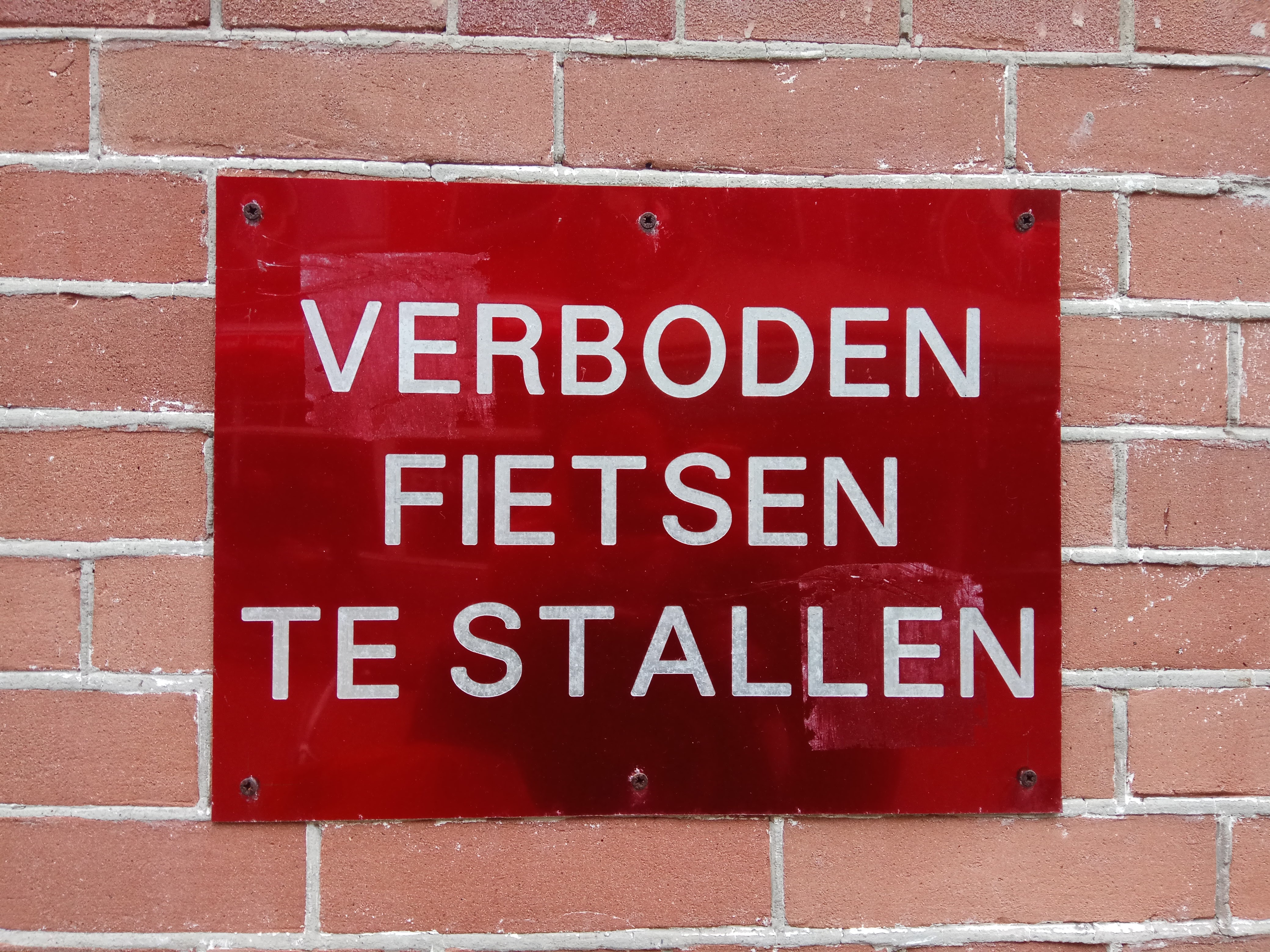
“Forbidden to park bikes”. Not that effective …
Unfortunately that doesn’t work out, because bikes are also everywhere.
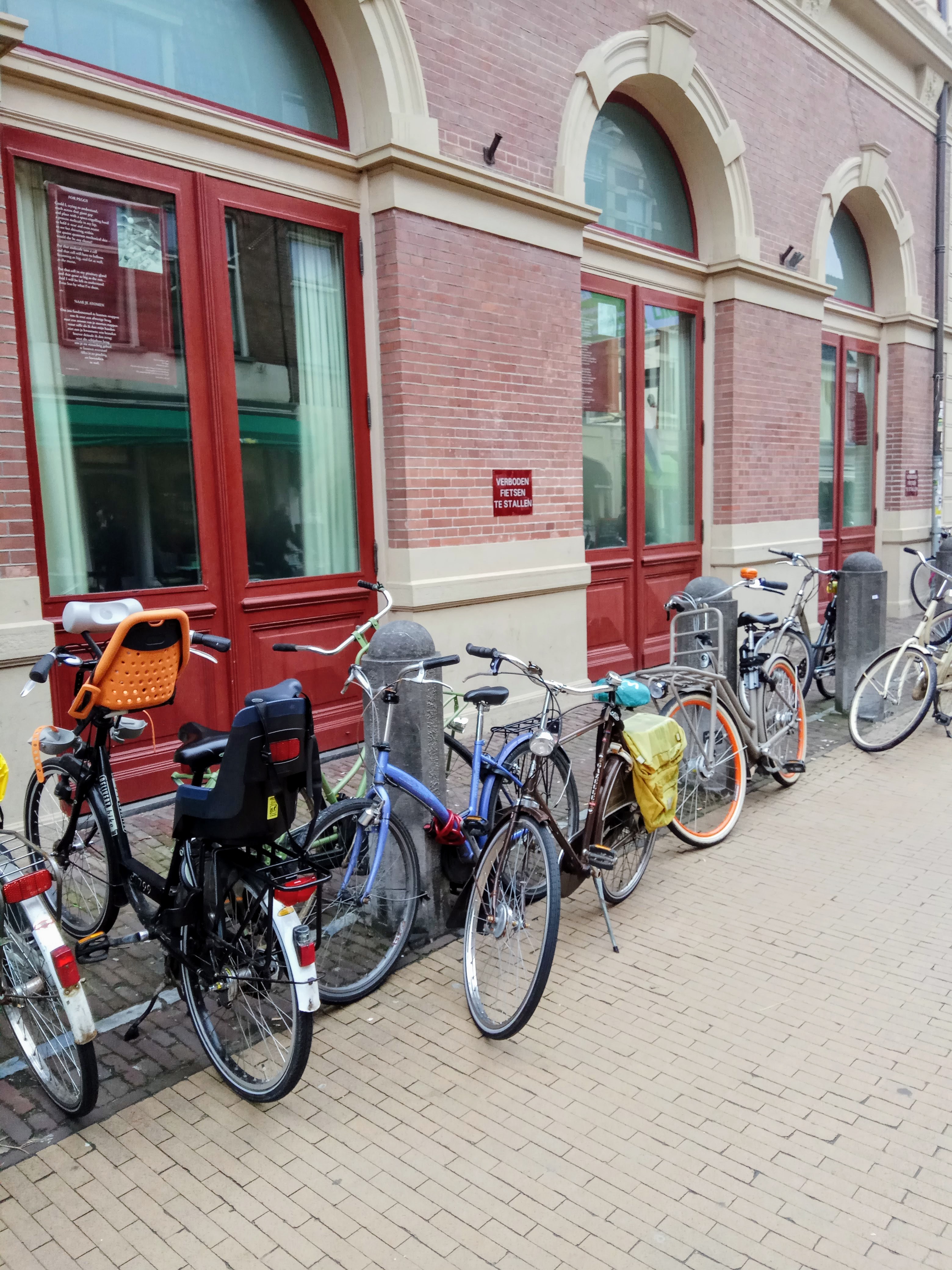
What’s that red thing there on the wall? You can see how effective the sign is.
At this point, I suspect that the Dutch simply don’t read these signs or have developed a genetic blind spot to them. On the other hand, it’s also true that the worst thing that can happen is somebody moving the bike or leaving a note on it. Nobody will take your bike away. Steal, yes. Make it fall, definitely. But not tow it away for legal reasons.
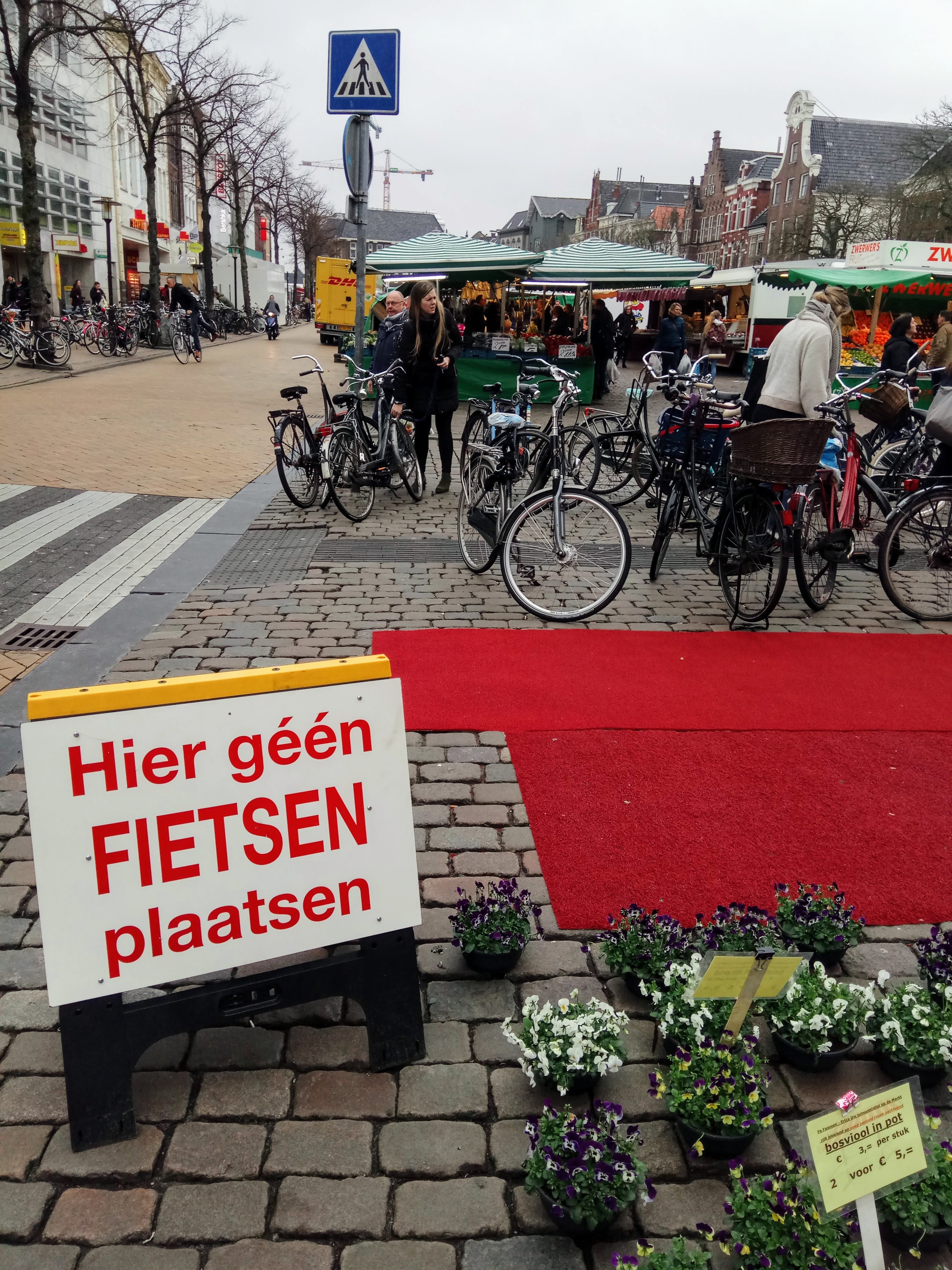
The sign on the market is about as effective as the one by the uni. It’s not.
This morning, I drove to my classes in the rain and barely found an empty bike rack. When I cycle, everything is creaking. But this, as one of my friends pointed out, only means that I’ve finally become a certified member of the Dutch cycling club. Which is true. Everyone drives around on their bikes but they will sooner judge you if you have a new bike than if you have one that’s falling apart. After all: it only matters that it works, and mine definitely does. Just loudly.

